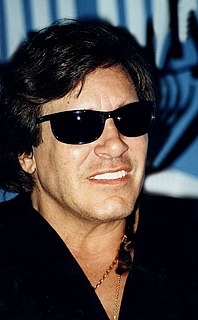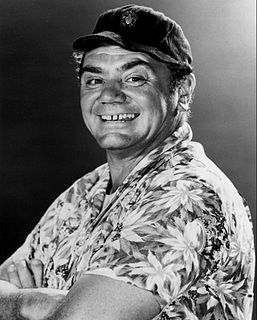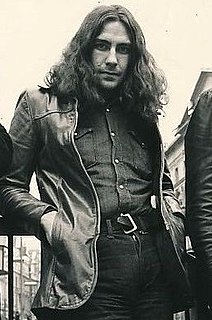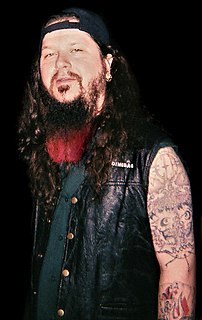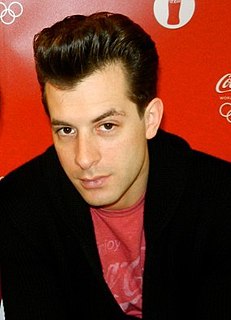A Quote by Jose Feliciano
Very few guitarists play nylon-string. They don't know how to get the sound out of them. That's something I've spent a lot of time on.
Related Quotes
A lot of people forget that today. They come to the point where you walk on a set and the first thing you know you're looking at the sound man and you're saying to yourself, "How the hell can they get any sound when nobody is talking!" They get all mumbly. You can't make out what they're saying! And you're 6 feet away from them! Whereas in the old-time movies, you hear them, you understand every word they're saying, and you didn't have to put on your loudspeaker.
I sometimes feel a bit embarrassed to play guitar. There's something - I don't want to sound ungrateful - but there's something very old-fashioned and traditional about it. You meet kids today whose grandparents were in punk bands, really. It's very old and traditional, But then, you know, so is an orchestra and so is the string section.
With 'Black Rain,' I spent a lot of time with homicide detectives, and I spent a lot of time with different brokers on 'Wall Street.' It helps get the rhythm of the piece and the tone, and how overplayed or underplayed it might be. That's also the magic of movies: You get to hang out and live these different lives.
We needed to make a sound that's not gonna fit in with everything else - we wanted to make something that was completely unique and individual to us. We spent a lot of time trying to make a sound that was a One Direction sound. At first it was quite hard to do that, but I'm really happy with the sound.
Teaching I realized took up a lot of my time. I was a kind of a teacher that spent time with students, spoke to them after class, tried to help them out. I'd talk with them personally about their work and try to get out of them what they were thinking about, forcing them to thinking seriously and not just falling back on all the ideas that they had picked up someplace. And so I took my job teaching very seriously and that - as a result, it took up a lot of time.
I have a deep connection with Mahatma Gandhi, partly because my mother was a very, very staunch Gandhian and brought us up that way. When I was six years old, and all the girls were getting nylon dresses, I was very keen to get a nylon frock for my birthday. My mother said, ?I can get it for you, but would you rather?through how you live and what you wear and what you eat?ensure that food goes into the hands of the weaver or ensure that profits go into the bank of an industrialist?? That became such a checkstone for everything in life.
For my 23rd birthday, I received a nylon string guitar. I told myself that if I could play Eric Clapton's 'Tears In Heaven,' then I could play the guitar. I practised every chance I got, driving my housemates insane, until several weeks later I had a shaky version of the song down. I wrote my first song on the guitar a few weeks after that.
I mean, what's thematic? How to put it? Going back to, like, 1980, when I started writing poetry. Language itself became an issue. I'd even think about font as an aspect of text, you know, how something looks on a page. A lot of this is the product of a very solitary existence, it's like, language, I mean, you know. A lot of time spent alone in the creation of all of this stuff.
I spent a lot of time with a real detective, a lady detective inspector who was the only female detective inspector in the whole of East London. She and I hung out a lot. She showed me what she did and I spent time with her. So, [she was] a lot of the inspiration for the way I dressed and sometimes the dialogue in those interview scenes where we're cross examining and questioning the youths and trying to get a confession out of them.
I sometimes feel a bit embarrassed to play guitar. There's something - I don't want to sound ungrateful - but there's something very old-fashioned and traditional about it. You meet kids today whose grandparents were in punk bands. It's very old and traditional, but then, so is an orchestra and so is a string section.
So when I was working with Amy Winehouse on "Back To Black," you know, she had all these beautiful songs, incredibly well-written and just her on an acoustic, nylon-string guitar. And she'd play them for me, and then I would kind of drum up my idea of what I thought - make a demo with what I thought the drums should be doing, the guitars - like, quite a crude demo.
Friendship is anything that you get something out of that is very, very important to you. And that's why there are those people who are so close to you that you don't know how you'd live without them. And they are the ones that, even if they do something terrible, you have to keep. Otherwise, you're just going to be lost without them.
Miles Davis came in a couple of days and said, "Oh, man, I love that. Keep going." So he said, "Let me know when you need trumpet." And he came in, and he was sitting there, and I was very intimidated, because now he's going to play the trumpet on something that I wrote." He starts to play, and I go, "That's not right, but I don't know how to tell him it's not right." Finally he goes, "When are you going to tell me what to do?" He said, "This is your music. I know you know how it's supposed to sound. Stop fooling around. We don't have time."
